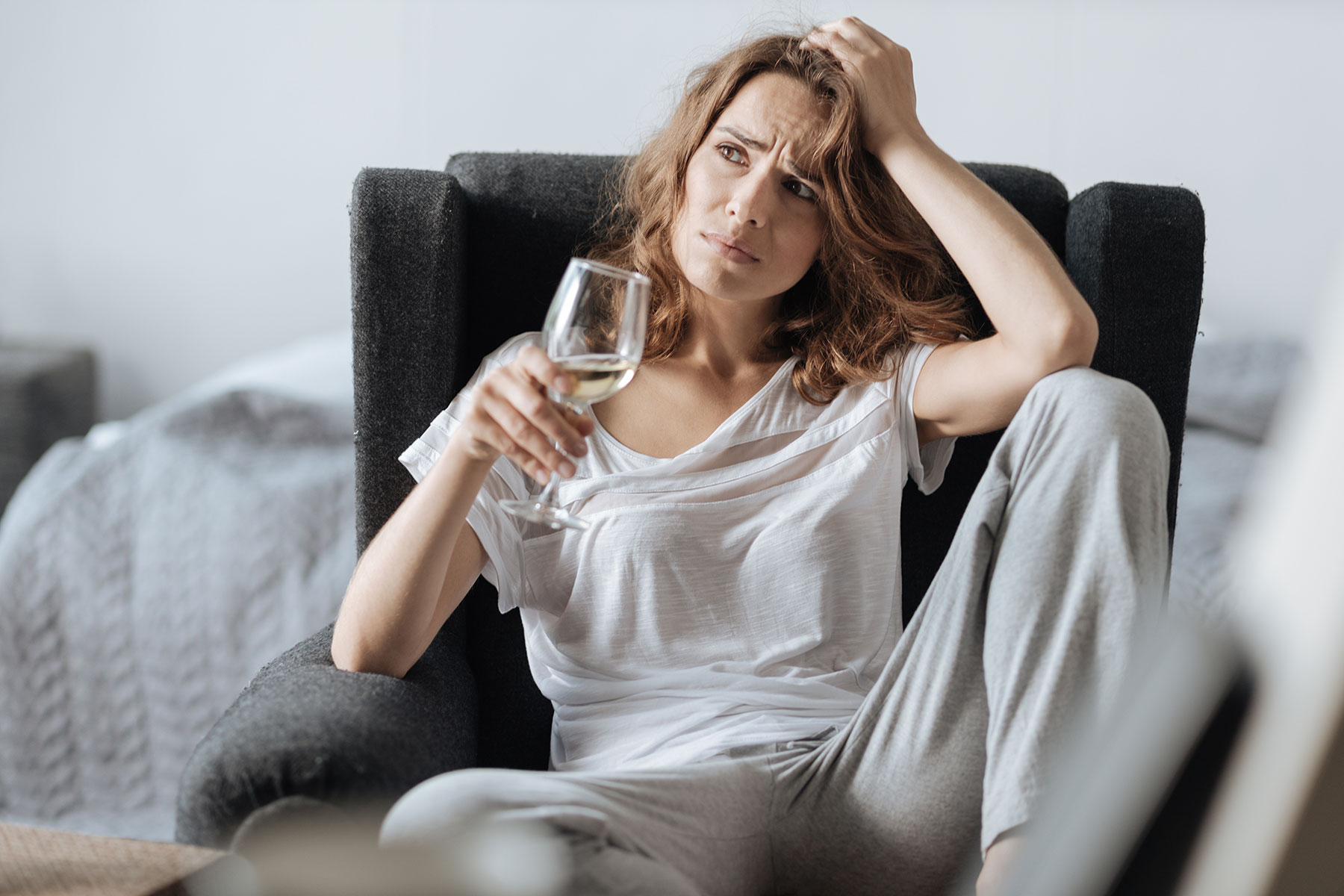A co-occurring disorder is a person simultaneously having two or more substance use disorders (SUD) or mental health conditions. Also called dual diagnosis, co-occurring disorders are common and impact millions of Americans. The combination of co-occurring disorders can vary widely. However, some are more prevalent than others. Anxiety and alcohol use disorder (AUD) is a typical dual diagnosis.
Treatment for co-occurring disorders is complex and requires a comprehensive and integrated approach. Evoke Wellness at Cohasset is the region’s premier choice for dual diagnosis treatment in Massachusetts. Our admissions counselors are available 24/7 to help you or your loved one begin the journey to recovery. Call 866.931.6429 to learn more about our dual diagnosis treatment program.
What to Know About Treating Co-Occurring Disorders
Co-occurring disorders can be challenging to diagnose because the symptoms of different conditions are often similar and can overlap. These symptoms feed off one another, creating a cycle of dysfunction that can interfere with everyday life, affecting relationships, work, school, home life, and overall daily functioning.
When a substance use disorder (SUD) is present, the first step in treatment is medical detox. Without this step, therapeutic interventions would be ineffective because drugs and alcohol inhibit a person’s ability to engage in therapy fully.
Dual diagnosis treatment provides education about how co-occurring disorders impact one another and how that affects overall functioning. Other critical components of treating co-occurring disorders include the following:
- Assessment and diagnosis
- Individualized treatment plans
- Integrative therapy
- Medication-assisted treatment, where appropriate
- Psychotherapy
- Support groups and peer support
- Lifestyle changes
- Family therapy and support
- Trauma therapy, where indicated
At Evoke Wellness at Cohasset, dual diagnosis treatment is tailored to each patient’s needs. Symptoms of co-occurring disorders vary between individuals and based on diagnoses; thus, a “one-size-fits-all” approach is ineffective. Further, an individual struggling with alcohol and anxiety will require a different treatment approach than one struggling with cocaine and bipolar disorder.
Understanding the Relationship Between Alcohol and Anxiety
There is a complex relationship between anxiety disorders and alcohol abuse. Despite the initial sense of relaxation and stress relief that alcohol can provide, ultimately, alcohol worsens anxiety in numerous ways.
Specific ways alcohol can exacerbate anxiety include the following:
- Neurotransmitter disruption – Alcohol affects neurotransmitters, including GABA and glutamate. While alcohol initially stimulates GABA, promoting relaxation, as it wears off, it disrupts the balance between GABA and glutamate, creating increased anxiety and restlessness.
- Sleep interference – While alcohol can make people fall asleep faster, it interferes with natural sleep patterns, resulting in sleep disturbances and poor sleep quality, which can contribute to higher rates of anxiety during the day.
- Decreased inhibitions and judgment – Lowered inhibition and impaired judgment can make people engage in behaviors they otherwise would not, leading to situations that can trigger or exacerbate anxiety.
- Dehydration – As a diuretic, alcohol can contribute to dehydration, the symptoms of which (dizziness, rapid heartbeat, headache) can mimic or worsen anxiety symptoms.
- Depression and mood swings – Excessive or chronic alcohol use contributes to mood swings and depression, which often co-occurs with anxiety. Depression symptoms can intensify anxiety symptoms.
- Dependency and withdrawal – Regular alcohol use often leads to physical and psychological dependency. When trying to reduce alcohol use, people can experience restlessness, heightened anxiety, and panic attacks.
Excessive alcohol use can also contribute to strained relationships, social isolation, financial difficulties, and legal issues, all of which can worsen anxiety. Chronic alcohol abuse can damage the brain, exacerbating anxiety disorders and contributing to other mental health issues, such as depression.
Learn More About Alcohol and Anxiety at Evoke Wellness, Massachusetts
Alcohol use disorder (AUD)and anxiety disorders are common co-occurring disorders, and it is often difficult to determine which came first. Many people with anxiety turn to alcohol for symptom relief, often leading to AUD. Conversely, individuals with AUD often develop mental health issues, including anxiety and depression.
Successful treatment for co-occurring disorders relies on an integrative approach to address each diagnosis simultaneously. The experienced staff at Evoke Wellness at Cohasset provide exceptional, compassionate, comprehensive care utilizing evidence-based and holistic therapies.
If you or a loved one struggles with alcohol and anxiety, we are here to help. Contact us online or call 866.931.6429 to learn more about our dual diagnosis treatment program.




